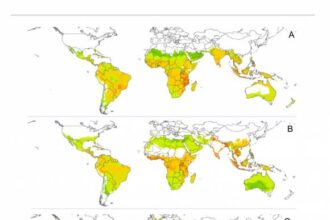The UK explored selling or leasing forest land to private interests, but encounter some public backlash. “The plans were intended to give the private sector, community and charitable groups greater involvement in woodlands by encouraging a “mixed model” of ownership. But critics argued it could threaten public access, biodiversity and result in forests being used for unsuitable purposes.” Should the government own forests? In general, I would say no. If private firms or organizations would want to pay to access these forests, they should be able to do so. Some of the businesses who buy the land may want to harvest trees or start building apartment buildings. Others may want to create eco-tourism sites or private NGOs could buy the land to maintain it in its natural state. Regardless, individuals, firms, or organizations with the highest willingness to pay should be able to purchase the property. Once exception may be the production of oxygen. Trees produce oxygen for the whole country. However, oxygen is generally non-excludable. Thus, by cutting down trees, businesses who decide to deforest land impose an externality on others, especially if there are few forests left. To solve this problem, the government would create an oxygen tax. The tax would basically mandate that you need to have a certain number of trees per acre on your land or else you would pay the tax. This could apply to all land, not just forests. With the cost of apartments in central London, it is of course optimal to simply pay the tax and create dense neighborhoods. The oxygen tax is not without its flaws. If the tax is based on the number of trees on the property, one could simply buy lots of young trees to avoid the tax. Young, smaller trees, however, will not produce as much oxygen as larger older trees. One could estimate the aggregate biomass of trees on any property, but this would of course require regulators to ensure that people don’t lie about the biomass on their property. Is the oxygen tax a good idea? If deforestation becomes severe enough, it may be.






